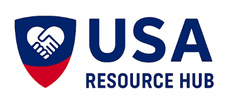Paying for utilities can become a real burden when money is tight. While government aid programs like LIHEAP offer support, not everyone qualifies, or wants to go that route. The good news is, there are other ways to get help. Local nonprofits, community groups, and even utility companies themselves often step in where federal aid stops.
This guide walks through practical, non-government options to help cover your utility bills.
Start with Your Utility Company
Before looking elsewhere, talk to your utility provider. Many companies offer payment plans, hardship programs, or one-time relief funds. These are not always advertised, so you may need to ask directly.
Some companies also partner with nonprofits to manage their assistance programs. For example, a gas or electric provider might fund a local charity that distributes aid on their behalf. Ask about:
- Budget billing or levelized payment plans
- Deferred payment options
- Emergency hardship grants
- Shutoff protection for seniors or people with medical needs
Documentation is usually required, such as proof of income or a recent bill. Still, the process is often faster than applying for public aid.
Check Local Churches and Faith-Based Groups
Churches and religious organizations often help people in crisis, regardless of faith. Some offer direct financial help, while others provide gift cards or referrals to other services.
You may not find this information online. It is better to call or visit in person. Ask if they have a benevolence fund or utility assistance program. Even if they cannot help directly, they may know who can.
Look Into Community Action Agencies
Community action agencies (CAAs) exist to fight poverty at the local level. While many manage government programs, they also run independent services funded by donations or private grants.
These agencies may offer:
- Utility bill assistance
- Weatherization help to lower future costs
- Financial counseling or budgeting support
To find your local CAA, search online using your ZIP code or visit the Community Action Partnership website. Each agency operates differently, so call ahead to ask what is available.
Explore Nonprofit Utility Assistance Funds
Some national nonprofits focus on helping people keep their lights on and water running. These groups often work with utility companies or raise money through donations.
Examples include:
- The Salvation Army: Offers energy assistance in many areas, especially during winter.
- Catholic Charities: Provides help with rent and utilities, depending on location.
- Modest Needs: Offers short-term grants for unexpected expenses, including utility bills.
- United Way: Connects people to local resources through its 211 helpline.
Call 211 or visit 211.org to find nearby programs. The operator can guide you to nonprofits in your area that offer utility help.
Ask About Local Utility Assistance Programs
Some cities and counties run local utility assistance programs outside of federal aid. These may be funded by local taxes, donations, or partnerships with businesses. They often serve people who fall just above the income limits for government help.
You might find these programs through:
- City or county websites
- Local libraries or community centers
- Flyers posted at food banks or shelters
Because these programs vary by location, it helps to ask around. Social workers, school counselors, or even your child’s pediatrician may know what is available.
Try Crowdfunding or Community Boards
In some cases, people turn to crowdfunding platforms like GoFundMe to raise money for urgent bills. While this is not a guaranteed solution, it has worked for some, especially when shared through local Facebook groups or neighborhood forums.
You can also post on community boards like Nextdoor or Craigslist. Be honest about your situation and clear about what you need. Some neighbors may be willing to help directly or point you to a resource you missed.
Getting help with utility bills does not always mean filling out long government forms or waiting weeks for approval. Many communities have built their own safety nets through nonprofits, churches, and local programs. These resources may not be widely advertised, but they exist, and they work.


Leave a Reply